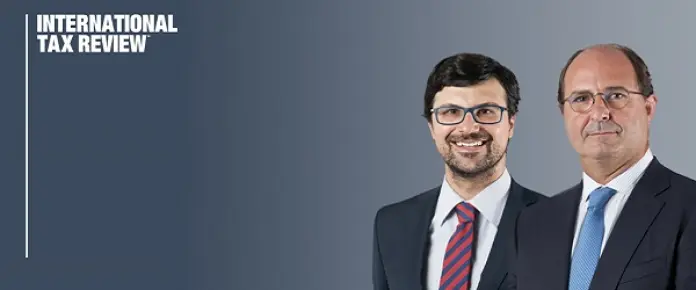
Don’t miss our content
SubscribePortugal's new state budget brings several changes to VAT in 2019, most notably exploring the distinction between voucher, single-purpose voucher and multi-purpose vouchers
Portugal’s state budget for 2019 ("Budget Law") has finally been approved, bringing several amendments to Portuguese VAT legislation that shall enter into force from the beginning of 2019.
Firstly, the Budget Law enshrines into Portugal’s VAT Code EU Directive 2016/1065, which refers to the specific rules applied to vouchers. In line with EU provisions, a distinction is made between "voucher", "single-purpose voucher" and "multi-purpose voucher". The supply of single-purpose vouchers determines that VAT will be due and payable upon said transmission.
For "multi-purpose vouchers", VAT shall be due at the moment the underlying taxable supply of goods or services takes place, regardless of there being any transmission between its issue date and date of redemption. The taxable amount of the goods and services to which the "multi-purpose vouchers" refers to is constituted by the value of the consideration, subtracted by the due tax for the underlying supply of services or goods. The amendments apply from January 1 2019, safeguarding the VAT treatment given to vouchers issued prior to the aforementioned date.
In addition to transposition of the vouchers regime, a new provision has been introduced to the VAT Code on telecommunications services, radio, television broadcasting services, and other electronically supplied services which are deemed to be located in Portugal. These are consequently subject to VAT whenever such services are utilised by non-taxable persons residing in an EU member state where the supplier is established, or in the absence of an establishment, has its permanent address or usual residence exclusively located in Portugal. This is provided that the total value of the referred supplies does not exceed EUR 10,000 (exclusive of VAT), with reference to the current or preceding calendar year.
Following recent legislative developments at the EU level, the state budget has extended the applicability of the reduced VAT rate of 6% to electronic books, newspapers and periodicals, thereby aligning the VAT rules for electronic and physical publications. On a side note, there has also been amendments to the application of the reduced VAT rate of 6% to several types of supply of goods and services (for instance, tickets to a variety of cultural events, the supply of hair prostheses, cleaning/cultural intervention services regarding forestry management/intervention, and leasing of prostheses).
Sadly, and contrary to what was expected, the state budget failed to tackle some more acute VAT issues that are in direct need of an intervention by the Portuguese legislator.
For example, the introduction of VAT Grouping in the VAT Code, which notably comes in the aftermath of the decisions made by the Court of Justice of the European Union (CJEU) on DNB Banka (C-326/15) and Aviva (C-605/15) cases, which saw the court rule against the applicability of the cost-sharing VAT exemption [Article 132(1)(f)] to a taxable person engaged in the supply of financial and insurance services.
In such decisions, the CJEU argued that the systematic framework of Article 132(1)(f) of the VAT Directive – that is to say, the inclusion of said provision in Chapter 2 of Title IX of the VAT Directive under Exemptions for Certain Activities in the Public Interest, and not in its General Provisions in Chapter 1 – is limited to the activities expressly listed in the various paragraphs of the Article 132. In other words, since the exemptions for the financial and insurance sectors are set out in Chapter 3 (Exemptions for Other Activities), entities that carry out these activities cannot benefit from the exemption provided at issue.
In Portugal, the domestic provision equivalent to Article 132(1)(f) of the VAT Directive generically applies to all sectors of activity (provision is titled as Exemptions in Internal Transactions), meaning that at a domestic level, the "systematic element" argument does not prevent the application of this exemption to entities in the financial and insurance sectors. On the other hand, the fact that taxable persons of these aforementioned business sectors are the ones benefiting primarily from the cost-sharing exemption, one could have expected that some legislative measures would be taken in order to align the VAT Code with the CJEU’s decisions, while also mitigating the impact of such a legislative amendment on financial/insurance entities. In this context, and following the trend witnessed in other EU Member states such as Italy, Luxembourg and Malta, the introduction of a VAT Grouping regime into the VAT Code was the obvious path to follow.
However (and for now), that was not the option of the Portuguese lawmaker. The currently constituted cost-sharing agreements may continue benefiting from said VAT-exemptions under domestic rules (which is still good news). By not changing its domestic legislation, Portugal is closer to becoming the subject to an infringement procedure for violation of European law, as well as edging closer to the underlying sanction implications.
As a result, another opportunity has passed for Portugal to right a wrong, which will keep us waiting for new updates on the matter.
This article was written by Diogo Ortigão Ramos, head of tax practice in Portugal, and Mário Silva Costa, senior associate lawyer, of Cuatrecasas Portugal.
Visit International Tax Review
Don’t miss our content
Subscribe